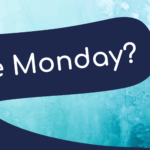Happy Pride month! Best For You is excited to join the celebrations of LGBTQ+ people and communities around the world. At the same time, we recognise that there’s still more work to do to support LGBTQ+ people with their mental health – including reducing prejudice, stigma, homophobia, and transphobia.

Why we celebrate Pride
Pride is a chance to celebrate the diverse lives of LGBTQ+ people, recognising the beauty and joy of the LGBTQ+ community and showing the importance of acceptance and inclusion.
This is especially important and powerful in light of negative, prejudiced messages about LGBTQ+ people.
Pride as a protest
Pride is also a protest. The first Pride happened in 1970, to mark a year since the Stonewall Uprising (where LGBTQ+ people protested the discrimination and violence they were experiencing from the police).
In 1972, the UK’s first Pride march took place in London. As well as a celebration, it was a protest against the unfair treatment of LGBTQ+ people. Male homosexuality (which was what laws specifically made illegal) stopped being illegal in England and Wales in 1967, but in 1972 it was still illegal in Scotland and Northern Ireland. Being gay was still classed as a ‘mental illness’ by the World Health Organization (WHO) until 1992 – and they didn’t stop classifying being transgender as a mental illness until 2019.
Society made lots of people feel ashamed of who they were because being gay, queer, or trans was seen as being wrong. LGBTQ+ people faced discrimination at work, when they were looking for housing, from the police, and in wider society.
Pride protests have been important in securing the rights of LGBTQ+ people across the world.
You can read more about the UK’s first Pride march from someone who was there, and find out about some of the changes that Pride has achieved, in this Huffington Post article about the first Pride.
People continue to protest through Pride marches because LGBTQ+ people still face discrimination and inequality in the UK and around the world. In 2017, research by Stonewall with more than 5,000 LGBTQ+ people in Britain highlighted the shocking levels of hate crime and discrimination LGBTQ+ people still face when it comes to housing, visiting places like restaurants, accessing services, and going to sports events.
LGBTQ+ people’s mental health
In the past, when being LGBTQ+ was classified as a mental illness, some organisations and people that claimed to support LGBTQ+ people treated them badly and caused them harm through practices such as conversion therapy.
We know that being LGBTQ+ isn’t a mental health problem – and being LGBTQ+ doesn’t cause mental health problems either. Being LGBTQ+ can be a source of pride and can bring important relationships and a sense of community into people’s lives.
At the same time, discrimination, homophobia, and transphobia against LGBTQ+ people, as well as social isolation, can have a negative effect on their mental health. Mental health problems including depression, self-harm, alcohol and drug abuse, and suicidal thoughts are more common among people who are LGBTQ+.
Pride is important for mental health because it helps LGBTQ+ people secure equal rights, which is crucial for their wellbeing.
Pride also helps people celebrate the best bits of being LGBTQ+, including community, acceptance, belonging, and joy! A 2019 study reported that LGBTQ+ people who reported more connectedness to the LGBTQ+ community were less likely to report suicidal behaviour.
Best For You and LGBTQ+ people’s mental health
Best For You is a partnership between Central and North West London NHS Foundation Trust, Chelsea and Westminster Hospital NHS Foundation Trust, and West London NHS Trust (as well as the NHS charity CW+ and Imperial College).
All three NHS Trusts are taking steps to make things better for LGBTQ+ people by recognising the barriers that LGBTQ+ patients and staff may face and taking steps to reduce them. For example, they have LGBTQ+ employee networks and have introduced badges to make everyone aware that the Trusts are a safe space to be openly LGBTQ+. The NHS has a National LGBT action plan, which aims to improve LGBTQ+ people’s experience in the NHS.
56 Dean Street, part of Chelsea and Westminster Hospital NHS Foundation Trust, is an expert sexual health clinic in London that focuses on the needs of the LGBTQ+ community. They’re working to end HIV transmission in gay men, and they empower people to manage their own (sex) lives and wellbeing. 56 Dean Street also runs TransPlus, the first integrated Gender, Sexual Health and HIV service commissioned by NHS England.
Best For You is committed to helping LGBTQ+ young people to find out more about mental health and access support that’s right for them. Our updated borough pages will include information on support specifically for LGBTQ+ young people.
Making Pride accessible
It’s also important that Pride is accessible for disabled people and people with mental health problems.
London Pride’s access arrangements include things like BSL interpreters, a quieter section of the parade where whistles and megaphones aren’t allowed (though it’s still quite noisy) and a wheelchair accessible bus. In Trafalgar Square, there’s a quiet rest tent where people can get space away from the crowds, as well as other facilities for wheelchair users and people with assistance animals.
If you’re organising your own events for Pride, consider what you could do to make it accessible for everyone. This might mean hosting virtual events as well as in-person ones, for example. Sober events, without drugs or alcohol, are important for people who don’t drink (for whatever reason).
If you’re holding a physical event, think about things like quiet spaces where people with conditions like anxiety and autism can take a break, and provide communication tools for autistic people who use them. There’s helpful information about communication tools on the National Autistic Society website.




























































